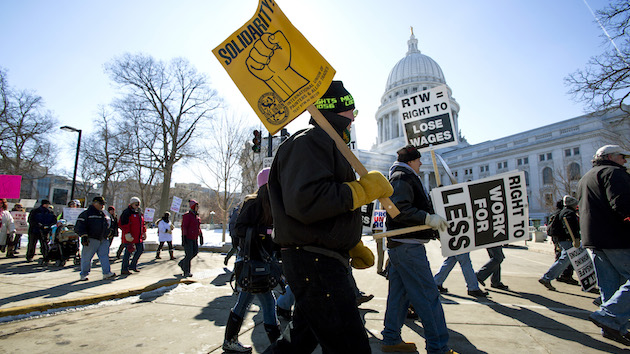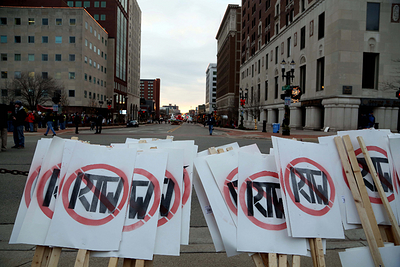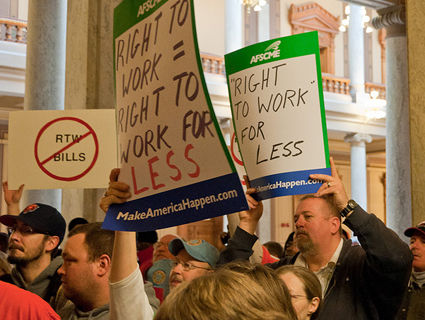
Protesters march in Madison, Wisconsin, against a "right-to-work" proposal last year. Twenty-six states have now passed right-to-work laws.Steve Apps, Wisconsin State Journal/AP
West Virginia, once a bastion of organized labor, will soon join the ranks of the right-to-work states that have undercut union participation. The Republican-dominated state legislature on Friday overrode Democratic Gov. Earl Ray Tomblin’s veto of a right-to-work bill, becoming the 26th state in the nation to pass such legislation.
Right-to-work laws bar unions from negotiating contracts that require all workers represented by a union to pay dues—in effect guaranteeing workers the union’s protections and representation regardless of whether they contribute. The laws are broadly understood to weaken unions.
The bill faced fierce opposition from unions, who organized protests at the state capitol and launched TV and radio ad campaigns to fight the legislation. But it also had money behind it, courtesy of Americans for Prosperity, the conservative advocacy group backed by the Koch brothers that has lobbied for right-to-work laws across the nation. One of the West Virginia bill’s key proponents, Republican gubernatorial candidate and state Senate president Bill Cole, touted his efforts to pass the right-to-work bill at a Palm Springs retreat organized by the Kochs earlier this year.
According to the US Census Bureau, West Virginia had a higher poverty rate than all but 10 states between 2011 and 2013. Many communities have been hit hard by the loss of thousands of mining jobs in recent years. Republican lawmakers claimed that loosening labor laws was necessary to attract businesses to the state. Democrats have argued that it will ultimately hurt workers, and that the bill was aimed primarily at diminishing unions’ political clout.
The right-to-work law will go into effect on July 1.












